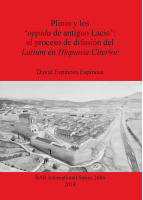Description
BOOK DESCRIPTIONThis volume is the result of five years of research about the juridical Latinization policy developed by Rome in the West, focusing on the integration -under the protection of the Latinity- of a set of Hispanian communities, promoted -in the Republican era- to colonial status and -during the Roman Empire- to the municipal. This research aims to raise the plausibility, from the existence in Augustan age of fifty 'oppida of ancient Latium', and many literary, archaeological, epigraphic and numismatic evidences scattered in the preserved documentation, that Rome had introduced in Hispania a Latin colonization policy similar to the one established in Italy and Gallia Cisalpina, amended in constitutional aspects but similar in their goals and results. The author posits that this fact would explain a set of historical phenomena and behaviours related to the existence of privileged communities in the field: that is, the involvement of the Iberian provinces in the Roman military and political conflicts, the force of military recruitment, the intensity of the italic migration flow, the socioeconomic integration of Hispanian communities in the western Mediterranean trade routes, and the widespread dissemination of the institutions, forms and cultural goods of the Roman-italic koiné. Therefore, this volume is intended to enrich and encourage the present historiographic debate, and setting the guidelines of what might have been the diffusion process of the Latium in Hispania Citerior in the Republican era.











